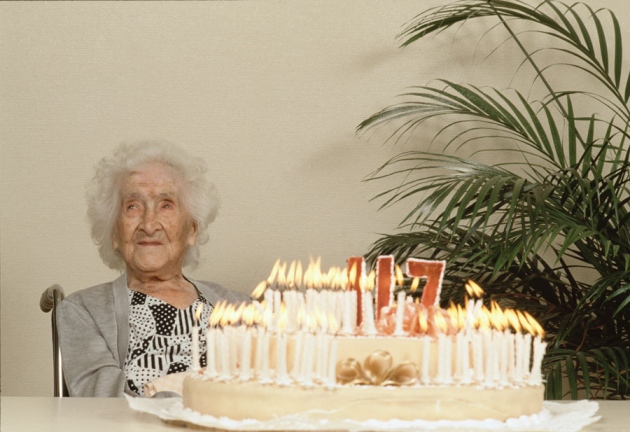
Is immortality just a pipe dream?
An article in Nature suggests that humans are unlikely to live longer than 125
 Jeanne Calment, our oldest
Jeanne Calment, our oldest
An article in Nature has cast a wet blanket on the dreams of immortality researchers. An analysis of global demographic data by researchers at Albert Einstein College of Medicine suggests that the limit to human lifespan is about 125 years. Maximum lifespans kept rising until the 1980s, but they seem to have hit a plateau at about 120. The longest-lived person on record is Jeanne Calment, a French woman who died in 1997 at the age of 122 years, 164 days. The probability of a person celebrating her 126th birthday in any given year is less than 1 in 10,000.
The paper, which was based on two international lists of the world’s oldest people, has created a controversy. On statistical grounds, it was dismissed as “a travesty” by German demographer James Vaupel. And gerontologist Aubrey de Grey, who has been working for years on rejuvenation biotechnologies, told Nataure News: “The result in this paper is absolutely correct, but it says nothing about the potential of future medicine, only the performance of today’s and yesterday’s medicine.”
De Grey believes that it is possible for people to be effectively immortal – or at least to live long enough so that they will be killed by a lightning bolt rather than by old age. He envisages lifespans of over 1000 years. Other scientists are lobbying to have ageing classified as a disease rather than as a life event. In other words, death would be treated as a medical failure than as something natural and expected.
Immortality is an obsession in Silicon Valley. Russian businessman Dmitry Itskov, is determined to celebrate his 10,000th birthday; Oracle co-founder Larry Ellison, says that a passive acceptance of mortality is “incomprehensible,” and Google has launched a venture to “cure death” called Callico.
https://www.bioedge.org/images/2008images/TH_calment.jpg
Creative commons
https://www.bioedge.org/images/2008images/GettyImages-591074694_WEB.jpg
immortality
life expectancy
life extension
- How long can you put off seeing the doctor because of lockdowns? - December 3, 2021
- House of Lords debates assisted suicide—again - October 28, 2021
- Spanish government tries to restrict conscientious objection - October 28, 2021
